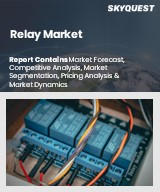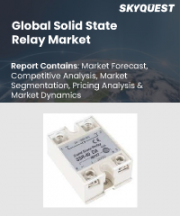
|
시장보고서
상품코드
1570683
5G 인쇄회로기판(PCB) 시장 : 용도별, 재료 유형별 - 예측(2025-2030년)5G Printed Circuit Board Market By Application (Automotive, Consumer Electronics, Healthcare), By Material Type (Flexible PCBs, Rigid PCBs, Rigid-Flex PCBs) - Global Forecast 2025-2030 |
||||||
5G PCB 시장은 2023년에 170억 4,000만 달러로 평가되었고, 2024년에는 194억 5,000만 달러로 추정되며, CAGR 14.31%로 성장할 전망이고, 2030년에는 434억 8,000만 달러에 이를 것으로 예상됩니다.
5G PCB 시장은 5G 통신 인프라에 특화된 회로기판의 설계, 제조 및 배치를 포함합니다. 이 부문은 5G 네트워크에 필요한 고속 데이터 처리 및 지연을 줄이는 데 필수적입니다. 그 필요성은 IoT 디바이스, 자율주행차, 스마트시티 등의 용도를 지원하는 접속성 강화의 필요성으로부터 생겨, 그 결과 통신, 자동차, 소비자용 전자기기 업계에 걸친 최종 용도의 범위가 확대되어 합니다. 이 시장의 성장은 주로 고속 모바일 광대역에 대한 세계 수요의 급증, 급속한 디지털화, 커넥티드 디바이스의 급증에 기인합니다. 또한 전 세계적으로 통신사와 정부가 5G 인프라에 투자하는 것도 주요 성장 요인이 되고 있습니다.
| 주요 시장 통계 | |
|---|---|
| 기준년(2023년) | 170억 4,000만 달러 |
| 예측년(2024년) | 194억 5,000만 달러 |
| 예측년(2030년) | 434억 8,000만 달러 |
| CAGR(%) | 14.31% |
최근의 비즈니스 기회는 차세대 인프라에 투자하는 신흥국 시장에서 특히 5G 네트워크의 광범위한 개발과 전개에 있어 경제 성장을 뒷받침하고 있습니다. 기업은 5G 용도에 필수적인 보다 우수한 열 관리 및 신호 무결성을 제공하는 재료를 혁신함으로써 이를 활용할 수 있습니다. 그러나 첨단 PCB의 높은 재료 개발 비용, 기존 5G 시스템으로의 통합 복잡성, PCB 제조 환경에 미치는 영향 등의 과제는 시장 성장을 방해할 수 있습니다. 기업은 이러한 과제를 완화하기 위해 환경적으로 지속 가능한 PCB 제조 기술 개발에 주력해야 합니다. 작고 복잡한 전자기기에 사용할 수 있는 연질 PCB의 기술 혁신과 생물분해성 재료의 연구는 미래의 큰 성장 기회를 가져올 것입니다. 시장은 역동적이고 급속한 기술 진보와 첨단 경쟁을 특징으로 하며 지속적인 기술 혁신과 전략적 제휴가 필요합니다. 성공하기 위해서는 기업은 연구개발에 투자하고 5G 네트워크 개발자와 협력하며 기술 진보를 목적으로 하는 정부 인센티브를 활용해야 합니다. 결론적으로 5G PCB 시장은 전략적 전망과 지속가능한 실천을 필요로 하는 과제 간의 균형을 이루고 있으며, 고속 연결로의 세계적인 변화에 견인되어 상당한 성장 전망을 제공합니다.
시장 역학 : 빠르게 진화하는 5G PCB 시장의 주요 시장 인사이트 공개
5G PCB 시장은 수요 및 공급의 역동적인 상호작용에 의해 변모를 이루고 있습니다. 이러한 시장 역학의 진화를 이해함으로써 기업은 충분한 정보를 바탕으로 투자결정, 전략적 결정 정밀화, 새로운 비즈니스 기회 획득에 대비할 수 있습니다. 이러한 동향을 종합적으로 파악함으로써 기업은 정치적, 지리적, 기술적, 사회적, 경제적 영역에서 다양한 위험을 완화할 수 있으며, 소비자 행동과 그것이 제조 비용 및 구매 추세에 미치는 영향에 대해서도 더 명확하게 이해할 수 있습니다.
Porter's Five Forces : 5G PCB 시장을 탐색하는 전략 도구
Porter's Five Forces 프레임 워크는 시장 상황경쟁 구도를 이해하는 중요한 도구입니다. Porter's Five Forces 프레임 워크는 기업의 경쟁을 평가하고 전략적 기회를 탐구하는 명확한 기술을 설명합니다. 이 프레임 워크는 기업이 시장 내 세력도를 평가하고 신규 사업의 수익성을 판단하는 데 도움이 됩니다. 이러한 인사이트를 통해 기업은 자사의 강점을 활용하고 약점을 해결하고 잠재적인 과제를 피할 수 있으며 보다 강인한 시장에서의 포지셔닝을 확보할 수 있습니다.
PESTLE 분석 : 5G PCB 시장에서 외부로부터의 영향 파악
외부 거시 환경 요인은 5G PCB 시장의 성과 역학을 형성하는데 매우 중요한 역할을 합니다. 정치적, 경제적, 사회적, 기술적, 법적, 환경적 요인 분석은 이러한 영향을 탐색하는 데 필요한 정보를 설명합니다. PESTLE 요인을 조사함으로써 기업은 잠재적인 위험과 기회를 더 잘 이해할 수 있습니다. 이 분석을 통해 기업은 규제, 소비자 선호, 경제 동향의 변화를 예측하고 앞으로 예상되는 적극적인 의사 결정을 할 준비를 할 수 있습니다.
시장 점유율 분석 : 5G PCB 시장에서 경쟁 구도 파악
5G PCB 시장의 상세한 시장 점유율 분석을 통해 공급업체의 성과를 종합적으로 평가할 수 있습니다. 기업은 수익, 고객 기반, 성장률 등 주요 지표를 비교하여 경쟁 포지셔닝을 밝힐 수 있습니다. 이 분석을 통해 시장 집중, 세분화 및 통합 동향을 밝혀내고 공급업체는 경쟁이 치열해짐에 따라 자사의 지위를 높이는 전략적 의사 결정을 내리는 데 필요한 지식을 얻을 수 있습니다.
FPNV 포지셔닝 매트릭스 : 5G PCB 시장에서 공급업체의 성능 평가
FPNV 포지셔닝 매트릭스는 5G PCB 시장에서 공급업체를 평가하는 중요한 도구입니다. 이 행렬을 통해 비즈니스 조직은 공급업체의 비즈니스 전략과 제품 만족도를 기준으로 평가하여 목표에 맞는 충분한 정보를 바탕으로 의사 결정을 내릴 수 있습니다. 네 가지 사분면을 통해 공급업체를 명확하고 정확하게 세분화하여 전략 목표에 가장 적합한 파트너 및 솔루션을 파악할 수 있습니다.
전략 분석 및 추천 : 5G PCB 시장에서 성공을 위한 길 그리기
5G PCB 시장의 전략 분석은 세계 시장에서의 현장 강화를 목표로 하는 기업에 필수적입니다. 주요 자원, 역량 및 성과 지표를 검토함으로써 기업은 성장 기회를 파악하고 개선을 위해 노력할 수 있습니다. 이 접근법을 통해 경쟁 구도에서 과제를 극복하고 새로운 비즈니스 기회를 활용하여 장기적인 성공을 거둘 수 있는 체제를 마련할 수 있습니다.
이 보고서는 주요 관심 분야를 포괄하는 종합적인 시장 분석을 제공합니다.
1. 시장 침투도 : 현재 시장 환경에 대해 상세히 검토합니다.
2. 시장 개척도 : 신흥 시장의 성장 기회를 파악하고, 기존 부문에서의 확장 가능성을 평가하며, 미래 성장을 위한 전략적 로드맵을 설명합니다.
3. 시장 다양화 : 최근 제품 출시, 미개척 지역, 업계의 주요 진보, 시장을 형성하는 전략적 투자를 분석합니다.
4. 경쟁 평가 및 정보 : 경쟁 구도를 철저히 분석하고 시장 점유율, 사업 전략, 제품 포트폴리오, 인증, 규제 당국 승인, 특허 동향, 주요 기업의 기술 진보 등을 조사했습니다.
5. 제품 개발 및 혁신 : 미래 시장 성장을 가속할 것으로 예상되는 최첨단 기술, 연구개발 활동, 제품 혁신을 강조합니다.
또한 이해관계자가 충분한 정보를 바탕으로 의사결정을 할 수 있도록 중요한 질문에도 답변하고 있습니다.
1. 현재 시장 규모 및 향후 성장 예측은?
2. 최고의 투자 기회를 제공하는 제품, 지역은 어디입니까?
3. 시장을 형성하는 주요 기술 동향 및 규제의 영향은?
4. 주요 벤더의 시장 점유율 및 경쟁 포지션은?
5. 벤더 시장 진입 및 철수 전략의 원동력이 되는 수익원과 전략적 기회는 무엇인가?
목차
제1장 서문
제2장 조사 방법
제3장 주요 요약
제4장 시장 개요
제5장 시장 인사이트
- 시장 역학
- 성장 촉진요인
- 자동차에서의 5G 기술 도입 확대가 5G 인쇄회로기판(PCB) 시장 확대 촉진
- 스마트 시티의 급속한 발전에는 고급 5G 인쇄회로기판(PCB) 솔루션 필요
- 신흥 시장에서의 5G 네트워크의 확대에 의해 인쇄회로기판 수요 증가
- 모바일 데이터 트래픽의 급증으로 신뢰할 수 있는 5G PCB 기술의 필요성 증가
- 억제요인
- 소비자용 전자기기 제조업체의 보다 작고 효율적인 5G PCB에 대한 수요가 생산상 과제 초래
- 항공우주 산업에서 5G PCB 제조에 필요한 한정된 원재료 공급
- 기회
- 고급 인쇄회로기판을 필요로 하는 5G 기술로의 이행을 진행하는 자동차 업계
- 의료 부문, 의료기기의 접속성 강화를 위해 5G 인쇄회로기판(PCB)을 활용
- 인쇄회로기판 기술에 있어서의 5G의 진보가 산업 오토메이션과 로봇 공학 추진
- 과제
- 기술적 복잡성 및 설계상의 제약
- 성장 촉진요인
- 시장 세분화 분석
- Porter's Five Forces 분석
- PESTLE 분석
- 정치
- 경제
- 사회
- 기술
- 법률
- 환경
제6장 5G 인쇄회로기판(PCB) 시장 : 용도별
- 서문
- 자동차
- 선진 운전 지원 시스템(ADAS)
- 인포테인먼트 시스템
- 차차간 통신(V2X)
- 소비자용 전자 기기
- 스마트폰
- 태블릿
- 웨어러블
- 의료
- 원격 모니터링
- 원격 의료
- 웨어러블 건강 기기
- 산업
- 산업용 IoT(IIoT)
- 로봇 공학
- 스마트 제조
- 통신
- 5G 기지국
- 5G 네트워크 기기
- 5G 스몰셀
제7장 5G 인쇄회로기판(PCB) 시장 : 재료 유형별
- 서문
- 연질 PCB
- 양면
- 다층
- 편면
- 리지드 PCB
- 양면
- 다층
- 편면
- 리지드 플렉스 PCB
제8장 아메리카의 5G 인쇄회로기판(PCB) 시장
- 서문
- 아르헨티나
- 브라질
- 캐나다
- 멕시코
- 미국
제9장 아시아태평양의 5G 인쇄회로기판(PCB) 시장
- 서문
- 호주
- 중국
- 인도
- 인도네시아
- 일본
- 말레이시아
- 필리핀
- 싱가포르
- 한국
- 대만
- 태국
- 베트남
제10장 유럽, 중동 및 아프리카의 5G 인쇄회로기판(PCB) 시장
- 서문
- 덴마크
- 이집트
- 핀란드
- 프랑스
- 독일
- 이스라엘
- 이탈리아
- 네덜란드
- 나이지리아
- 노르웨이
- 폴란드
- 카타르
- 러시아
- 사우디아라비아
- 남아프리카
- 스페인
- 스웨덴
- 스위스
- 터키
- 아랍에미리트(UAE)
- 영국
제11장 경쟁 구도
- 시장 점유율 분석(2023년)
- FPNV 포지셔닝 매트릭스(2023년)
- 경쟁 시나리오 분석
- 전략 분석 및 제안
The 5G Printed Circuit Board Market was valued at USD 17.04 billion in 2023, expected to reach USD 19.45 billion in 2024, and is projected to grow at a CAGR of 14.31%, to USD 43.48 billion by 2030.
The 5G Printed Circuit Board (PCB) market encompasses the design, fabrication, and deployment of circuit boards specifically tailored for 5G telecommunications infrastructure. This segment is vital for enabling the faster data processing and reduced latency required by 5G networks. Its necessity arises from the need for enhanced connectivity, supporting applications such as IoT devices, autonomous vehicles, and smart cities, thus expanding its end-use scope across telecommunications, automotive, and consumer electronics industries. Growth in this market is primarily driven by the global surge in demand for high-speed mobile broadband, rapid digitalization, and the proliferation of connected devices. Another key growth influencer is the increasing investment in 5G infrastructure by telecom companies and governments worldwide.
| KEY MARKET STATISTICS | |
|---|---|
| Base Year [2023] | USD 17.04 billion |
| Estimated Year [2024] | USD 19.45 billion |
| Forecast Year [2030] | USD 43.48 billion |
| CAGR (%) | 14.31% |
Recent opportunities lie in the extensive development and roll-out of 5G networks, particularly in emerging markets which are investing in next-generation infrastructure to boost economic growth. Companies can capitalize on this by innovating in materials that offer better thermal management and signal integrity, crucial for 5G applications. However, challenges such as the high cost of developing advanced PCB materials, the complexity of integrating them into existing 5G systems, and the environmental impact of PCB manufacturing could hinder market growth. Firms should focus on the development of environmentally sustainable PCB manufacturing technologies to mitigate these challenges. Innovations in flexible PCBs, which can be used in compact and complex electronic devices, and research into bio-degradable materials, present significant future growth opportunities. The market is dynamic, characterized by rapid technological advancements and a high degree of competition, necessitating continuous innovation and strategic partnerships. To thrive, companies should invest in R&D, collaborate with 5G network developers, and leverage government incentives aimed at technological advancements. In conclusion, the 5G PCB market offers substantial growth prospects, driven by the global shift towards high-speed connectivity, though balanced with challenges that necessitate strategic foresight and sustainable practices.
Market Dynamics: Unveiling Key Market Insights in the Rapidly Evolving 5G Printed Circuit Board Market
The 5G Printed Circuit Board Market is undergoing transformative changes driven by a dynamic interplay of supply and demand factors. Understanding these evolving market dynamics prepares business organizations to make informed investment decisions, refine strategic decisions, and seize new opportunities. By gaining a comprehensive view of these trends, business organizations can mitigate various risks across political, geographic, technical, social, and economic domains while also gaining a clearer understanding of consumer behavior and its impact on manufacturing costs and purchasing trends.
- Market Drivers
- Growing implementation of 5G technology in automotive driving market expansion for 5G printed circuit boards
- The rapid development of smart cities necessitating advanced 5G printed circuit board solutions
- Expansion of 5G networks in emerging markets fueling demand for printed circuit boards
- Surge in mobile data traffic increasing the need for reliable 5G printed circuit board technologies
- Market Restraints
- Consumer electronics manufacturers' demand for smaller and more efficient 5G PCBs creates production challenges
- Limited availability of raw materials required for 5G PCB manufacturing in the aerospace industry
- Market Opportunities
- Automotive sector transitioning to 5G technology requiring advanced printed circuit boards
- Healthcare sector leveraging 5G printed circuit boards for enhanced medical device connectivity
- Industrial automation and robotics driven by 5G advancements in printed circuit board technology
- Market Challenges
- Technical complexity and design constraints
Porter's Five Forces: A Strategic Tool for Navigating the 5G Printed Circuit Board Market
Porter's five forces framework is a critical tool for understanding the competitive landscape of the 5G Printed Circuit Board Market. It offers business organizations with a clear methodology for evaluating their competitive positioning and exploring strategic opportunities. This framework helps businesses assess the power dynamics within the market and determine the profitability of new ventures. With these insights, business organizations can leverage their strengths, address weaknesses, and avoid potential challenges, ensuring a more resilient market positioning.
PESTLE Analysis: Navigating External Influences in the 5G Printed Circuit Board Market
External macro-environmental factors play a pivotal role in shaping the performance dynamics of the 5G Printed Circuit Board Market. Political, Economic, Social, Technological, Legal, and Environmental factors analysis provides the necessary information to navigate these influences. By examining PESTLE factors, businesses can better understand potential risks and opportunities. This analysis enables business organizations to anticipate changes in regulations, consumer preferences, and economic trends, ensuring they are prepared to make proactive, forward-thinking decisions.
Market Share Analysis: Understanding the Competitive Landscape in the 5G Printed Circuit Board Market
A detailed market share analysis in the 5G Printed Circuit Board Market provides a comprehensive assessment of vendors' performance. Companies can identify their competitive positioning by comparing key metrics, including revenue, customer base, and growth rates. This analysis highlights market concentration, fragmentation, and trends in consolidation, offering vendors the insights required to make strategic decisions that enhance their position in an increasingly competitive landscape.
FPNV Positioning Matrix: Evaluating Vendors' Performance in the 5G Printed Circuit Board Market
The Forefront, Pathfinder, Niche, Vital (FPNV) Positioning Matrix is a critical tool for evaluating vendors within the 5G Printed Circuit Board Market. This matrix enables business organizations to make well-informed decisions that align with their goals by assessing vendors based on their business strategy and product satisfaction. The four quadrants provide a clear and precise segmentation of vendors, helping users identify the right partners and solutions that best fit their strategic objectives.
Strategy Analysis & Recommendation: Charting a Path to Success in the 5G Printed Circuit Board Market
A strategic analysis of the 5G Printed Circuit Board Market is essential for businesses looking to strengthen their global market presence. By reviewing key resources, capabilities, and performance indicators, business organizations can identify growth opportunities and work toward improvement. This approach helps businesses navigate challenges in the competitive landscape and ensures they are well-positioned to capitalize on newer opportunities and drive long-term success.
Key Company Profiles
The report delves into recent significant developments in the 5G Printed Circuit Board Market, highlighting leading vendors and their innovative profiles. These include AT&S, Chin Poon Industrial, Compeq Manufacturing Co. Ltd., Ellington Electronics Technology Co., Ltd., Flex Ltd., HannStar Board, Ibiden Co. Ltd., Kingboard Holdings Limited, Kinwong Electronic, Meiko Electronics, Nanya PCB, Nippon Mektron Ltd., Samsung Electro-Mechanics, Sanmina Corporation, Shennan Circuits, Tripod Technology Corporation, TTM Technologies, Unimicron Technology Corporation, WUS Printed Circuit Co. Inc., and Zhen Ding Technology Holding Limited.
Market Segmentation & Coverage
This research report categorizes the 5G Printed Circuit Board Market to forecast the revenues and analyze trends in each of the following sub-markets:
- Based on By Application, market is studied across Automotive, Consumer Electronics, Healthcare, Industrial, and Telecommunications. The Automotive is further studied across Advanced Driver-Assistance Systems (ADAS), Infotainment Systems, and Vehicle-To-Everything (V2X) Communication. The Consumer Electronics is further studied across Smartphones, Tablets, and Wearables. The Healthcare is further studied across Remote Monitoring, Telemedicine, and Wearable Health Devices. The Industrial is further studied across Industrial IoT (IIoT), Robotics, and Smart Manufacturing. The Telecommunications is further studied across 5G Base Stations, 5G Network Equipment, and 5G Small Cells.
- Based on By Material Type, market is studied across Flexible PCBs, Rigid PCBs, and Rigid-Flex PCBs. The Flexible PCBs is further studied across Double-Sided, Multi-Layer, and Single-Sided. The Rigid PCBs is further studied across Double-Sided, Multi-Layer, and Single-Sided.
- Based on Region, market is studied across Americas, Asia-Pacific, and Europe, Middle East & Africa. The Americas is further studied across Argentina, Brazil, Canada, Mexico, and United States. The United States is further studied across California, Florida, Illinois, New York, Ohio, Pennsylvania, and Texas. The Asia-Pacific is further studied across Australia, China, India, Indonesia, Japan, Malaysia, Philippines, Singapore, South Korea, Taiwan, Thailand, and Vietnam. The Europe, Middle East & Africa is further studied across Denmark, Egypt, Finland, France, Germany, Israel, Italy, Netherlands, Nigeria, Norway, Poland, Qatar, Russia, Saudi Arabia, South Africa, Spain, Sweden, Switzerland, Turkey, United Arab Emirates, and United Kingdom.
The report offers a comprehensive analysis of the market, covering key focus areas:
1. Market Penetration: A detailed review of the current market environment, including extensive data from top industry players, evaluating their market reach and overall influence.
2. Market Development: Identifies growth opportunities in emerging markets and assesses expansion potential in established sectors, providing a strategic roadmap for future growth.
3. Market Diversification: Analyzes recent product launches, untapped geographic regions, major industry advancements, and strategic investments reshaping the market.
4. Competitive Assessment & Intelligence: Provides a thorough analysis of the competitive landscape, examining market share, business strategies, product portfolios, certifications, regulatory approvals, patent trends, and technological advancements of key players.
5. Product Development & Innovation: Highlights cutting-edge technologies, R&D activities, and product innovations expected to drive future market growth.
The report also answers critical questions to aid stakeholders in making informed decisions:
1. What is the current market size, and what is the forecasted growth?
2. Which products, segments, and regions offer the best investment opportunities?
3. What are the key technology trends and regulatory influences shaping the market?
4. How do leading vendors rank in terms of market share and competitive positioning?
5. What revenue sources and strategic opportunities drive vendors' market entry or exit strategies?
Table of Contents
1. Preface
- 1.1. Objectives of the Study
- 1.2. Market Segmentation & Coverage
- 1.3. Years Considered for the Study
- 1.4. Currency & Pricing
- 1.5. Language
- 1.6. Stakeholders
2. Research Methodology
- 2.1. Define: Research Objective
- 2.2. Determine: Research Design
- 2.3. Prepare: Research Instrument
- 2.4. Collect: Data Source
- 2.5. Analyze: Data Interpretation
- 2.6. Formulate: Data Verification
- 2.7. Publish: Research Report
- 2.8. Repeat: Report Update
3. Executive Summary
4. Market Overview
5. Market Insights
- 5.1. Market Dynamics
- 5.1.1. Drivers
- 5.1.1.1. Growing implementation of 5G technology in automotive driving market expansion for 5G printed circuit boards
- 5.1.1.2. The rapid development of smart cities necessitating advanced 5G printed circuit board solutions
- 5.1.1.3. Expansion of 5G networks in emerging markets fueling demand for printed circuit boards
- 5.1.1.4. Surge in mobile data traffic increasing the need for reliable 5G printed circuit board technologies
- 5.1.2. Restraints
- 5.1.2.1. Consumer electronics manufacturers' demand for smaller and more efficient 5G PCBs creates production challenges
- 5.1.2.2. Limited availability of raw materials required for 5G PCB manufacturing in the aerospace industry
- 5.1.3. Opportunities
- 5.1.3.1. Automotive sector transitioning to 5G technology requiring advanced printed circuit boards
- 5.1.3.2. Healthcare sector leveraging 5G printed circuit boards for enhanced medical device connectivity
- 5.1.3.3. Industrial automation and robotics driven by 5G advancements in printed circuit board technology
- 5.1.4. Challenges
- 5.1.4.1. Technical complexity and design constraints
- 5.1.1. Drivers
- 5.2. Market Segmentation Analysis
- 5.3. Porter's Five Forces Analysis
- 5.3.1. Threat of New Entrants
- 5.3.2. Threat of Substitutes
- 5.3.3. Bargaining Power of Customers
- 5.3.4. Bargaining Power of Suppliers
- 5.3.5. Industry Rivalry
- 5.4. PESTLE Analysis
- 5.4.1. Political
- 5.4.2. Economic
- 5.4.3. Social
- 5.4.4. Technological
- 5.4.5. Legal
- 5.4.6. Environmental
6. 5G Printed Circuit Board Market, by By Application
- 6.1. Introduction
- 6.2. Automotive
- 6.2.1. Advanced Driver-Assistance Systems (ADAS)
- 6.2.2. Infotainment Systems
- 6.2.3. Vehicle-To-Everything (V2X) Communication
- 6.3. Consumer Electronics
- 6.3.1. Smartphones
- 6.3.2. Tablets
- 6.3.3. Wearables
- 6.4. Healthcare
- 6.4.1. Remote Monitoring
- 6.4.2. Telemedicine
- 6.4.3. Wearable Health Devices
- 6.5. Industrial
- 6.5.1. Industrial IoT (IIoT)
- 6.5.2. Robotics
- 6.5.3. Smart Manufacturing
- 6.6. Telecommunications
- 6.6.1. 5G Base Stations
- 6.6.2. 5G Network Equipment
- 6.6.3. 5G Small Cells
7. 5G Printed Circuit Board Market, by By Material Type
- 7.1. Introduction
- 7.2. Flexible PCBs
- 7.2.1. Double-Sided
- 7.2.2. Multi-Layer
- 7.2.3. Single-Sided
- 7.3. Rigid PCBs
- 7.3.1. Double-Sided
- 7.3.2. Multi-Layer
- 7.3.3. Single-Sided
- 7.4. Rigid-Flex PCBs
8. Americas 5G Printed Circuit Board Market
- 8.1. Introduction
- 8.2. Argentina
- 8.3. Brazil
- 8.4. Canada
- 8.5. Mexico
- 8.6. United States
9. Asia-Pacific 5G Printed Circuit Board Market
- 9.1. Introduction
- 9.2. Australia
- 9.3. China
- 9.4. India
- 9.5. Indonesia
- 9.6. Japan
- 9.7. Malaysia
- 9.8. Philippines
- 9.9. Singapore
- 9.10. South Korea
- 9.11. Taiwan
- 9.12. Thailand
- 9.13. Vietnam
10. Europe, Middle East & Africa 5G Printed Circuit Board Market
- 10.1. Introduction
- 10.2. Denmark
- 10.3. Egypt
- 10.4. Finland
- 10.5. France
- 10.6. Germany
- 10.7. Israel
- 10.8. Italy
- 10.9. Netherlands
- 10.10. Nigeria
- 10.11. Norway
- 10.12. Poland
- 10.13. Qatar
- 10.14. Russia
- 10.15. Saudi Arabia
- 10.16. South Africa
- 10.17. Spain
- 10.18. Sweden
- 10.19. Switzerland
- 10.20. Turkey
- 10.21. United Arab Emirates
- 10.22. United Kingdom
11. Competitive Landscape
- 11.1. Market Share Analysis, 2023
- 11.2. FPNV Positioning Matrix, 2023
- 11.3. Competitive Scenario Analysis
- 11.4. Strategy Analysis & Recommendation
Companies Mentioned
- 1. AT&S
- 2. Chin Poon Industrial
- 3. Compeq Manufacturing Co. Ltd.
- 4. Ellington Electronics Technology Co., Ltd.
- 5. Flex Ltd.
- 6. HannStar Board
- 7. Ibiden Co. Ltd.
- 8. Kingboard Holdings Limited
- 9. Kinwong Electronic
- 10. Meiko Electronics
- 11. Nanya PCB
- 12. Nippon Mektron Ltd.
- 13. Samsung Electro-Mechanics
- 14. Sanmina Corporation
- 15. Shennan Circuits
- 16. Tripod Technology Corporation
- 17. TTM Technologies
- 18. Unimicron Technology Corporation
- 19. WUS Printed Circuit Co. Inc.
- 20. Zhen Ding Technology Holding Limited



















